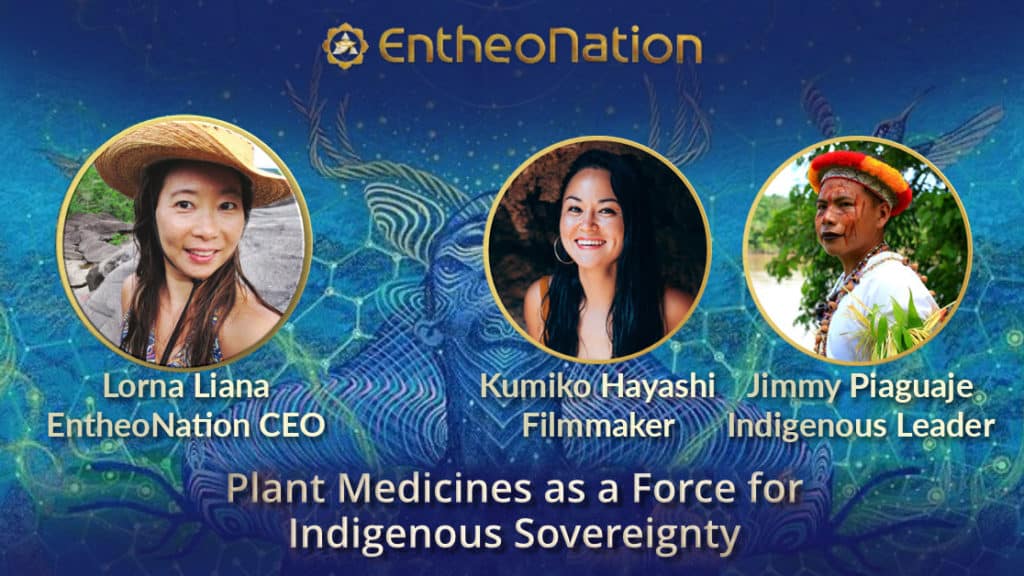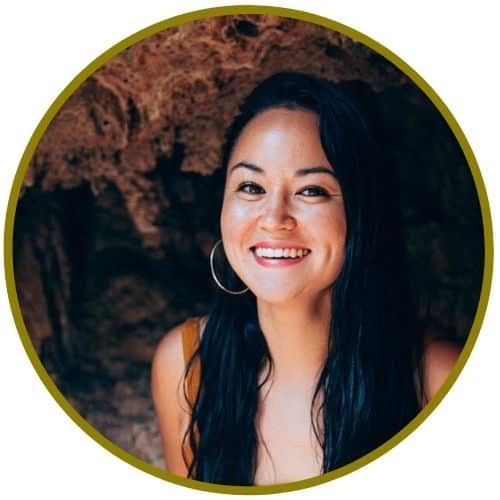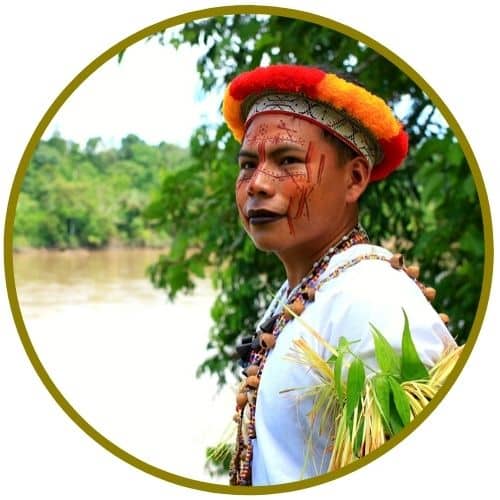Plant Medicines as a Force for Indigenous Sovereignty with Kumiko Hayashi & Jimmy Piaguaje

What is it like to live with and document indigenous cultures, ceremonies, and rituals? How are some indigenous communities using film to raise their voices and rebel against the threat of giant extractive industries? What role do plant medicines play in indigenous spirituality, as well as their political sovereignty? Learn in this interview with meta-shaman and filmmaker Kumiko Hayashi and indigenous leader and filmmaker Jimmy Piaguaje.
Documenting Indigenous Cultures
In 2014, Kumiko Hayashi flew to Ecuador on a one-way ticket with an open heart and her camera equipment. She had always had a drive for filmmaking, and, while visiting indigenous communities, she was invited to capture their important cultural ceremonies on video. This imbued her with a newfound sense of purpose and a drive to live with the indigenous and understand and portray the various aspects of their lives.
Eventually, the original plan to stay for two weeks got stretched to, as of now, over seven years. Throughout this time, she has lived with a number of indigenous communities across the Americas, staying with local families, partaking in ceremonies and rituals, sharing intimate moments, and documenting the entire experience.
Most importantly, by helping out in the day-to-day of the locals, and by sharing her knowledge, skills, and cultural experience, Kumiko built connections and earned indefinite welcomes in the communities she stayed with.
Learn more about indigenous lifestyle and cultural events: Ayahuasca Ceremonies Huni Kuin Style, at the Eskawata Kayawe Festival
In this interview with Lorna Li (embedded below), Kumiko shares her experience working with, and documenting indigenous communities and plant medicine rituals, adding advice on initiating your healing path and bridging the gap between the western and indigenous mindsets.
A Rebellion through Film
Along the way, staying with the Siekopai indigenous nation, Kumiko met Jimmy Piaguaje, a local indigenous leader, whom she connected with over their mutual passion for filmmaking.
Jimmy discusses ‘community cinema,’ a project born from the need to elevate the voices of indigenous elders because of the destruction wreaked on their lands by giant oil, mining, logging, and other extractive industries; crises such as these do not get enough visibility in the West due to local government control over the media.
The documenting of the environmental destruction serves as a tool of rebellion for the indigenous, allowing them to get this message out into the world. This platform synergizes with the increasing attention indigenous Amazonian peoples have been gaining over the past years in the Global North due to local traditional plant medicine use.
The potential of medicines such as ayahuasca to heal Western sufferings has been bringing many to the Amazon in search for this powerful, ancestral indigenous brew. As a result, many Amazonian communities which use ayahuasca have undergone developments in their tourism infrastructure and standard of life; in addition, the cross-cultural interchange has yielded a more prominent position of indigenous cultures in the eyes of the West, helping them in their battles against big industries and struggles for gaining political sovereignty.
Curious to learn about how much ‘traditional’ indigenous ayahuasca ceremonies resemble those mostly offered to foreign visitors? Read What’s a “Traditional” Ayahuasca Ceremony? Hint: It’s Not What You Think
Reconnecting with Ancestral Knowledge
The generations of colonization and extractivist activities have weighed down on indigenous communities, also manifesting in a disconnect from ritual plant medicine use. With many elders of the population perishing in the generations of suffering, and others prioritizing bare survival, passing of ancestral knowledge became difficult to maintain.
Over the last few decades, however, with the rising interest in plant medicines and indigenous ceremonies and rituals by denizens of the Global North, these traditions have been undergoing a revival. The globalization of ayahuasca has had a transformative effect on the youth in many indigenous communities – they have themselves been developing an interest in traditional healing and taking up shamanic training, striving to serve the growing demand of foreign visitors and building back the connection to their ancestral culture along the way.
The Huni Kuin in Brazil have also experienced a cultural revival and strengthening of their sovereignty movement through the use of the visionary brew nixi pãe (ayahuasca) and forging alliances with the West. Learn more about it in the Novo Futuro Mini-Documentary
In this interview with Kumiko and Jimmy, you will hear about:
- The kinds of spontaneous and authentic actions of reciprocity that can pave the way to a welcome stay for foreigners in indigenous communities
- How ‘community cinema’ is being produced in indigenous societies as a tool for getting the message out about the threats these communities are facing from extractive industries
- The role that plant medicines play in indigenous spirituality as well as their political sovereignty
- How the Siekopai have been treating COVID and how yagé (ayahuasca) has helped them learn which plants to use against the virus
- Why it’s advised to cultivate a respectful and reciprocal relationship with indigenous cultures regardless of whether we are using or, even, growing the plants ancestral to their culture outside of their lands
More about Kumiko Hayashi & Jimmy Piaguaje

Kumiko Hayashi is a meta-shaman, documentary film director, and producer born in Santa Fe, New Mexico. She has pioneered unexplored frontiers in indigenous media. She has presented her work with environmental conservation and indigenous cultures in conferences and gatherings around the world.
Kumiko is a producer and cinematographer of the film Women Of The White Buffalo (2020), a documentary about the stories of Native American Lakota Women. The Roots Awaken is her first directed feature length film.

Jimmy Piaguaje is a 25-year-old indigenous audiovisual producer and leader of the Siekopai Nation from the Amazon Rainforest. He is a communicator for the organization Alianza Ceibo, indigenous partner of Amazon Frontlines. He has worked on the recovery of oral knowledge of medicinal plants with the last shamans of his community.
Jimmy works with yagé (ayahuasca) to empower and protect his culture and territory that is being threatened by environmental destruction. He is currently working on a feature length fiction film called, “Wajokone” about the story of his grandparents.
